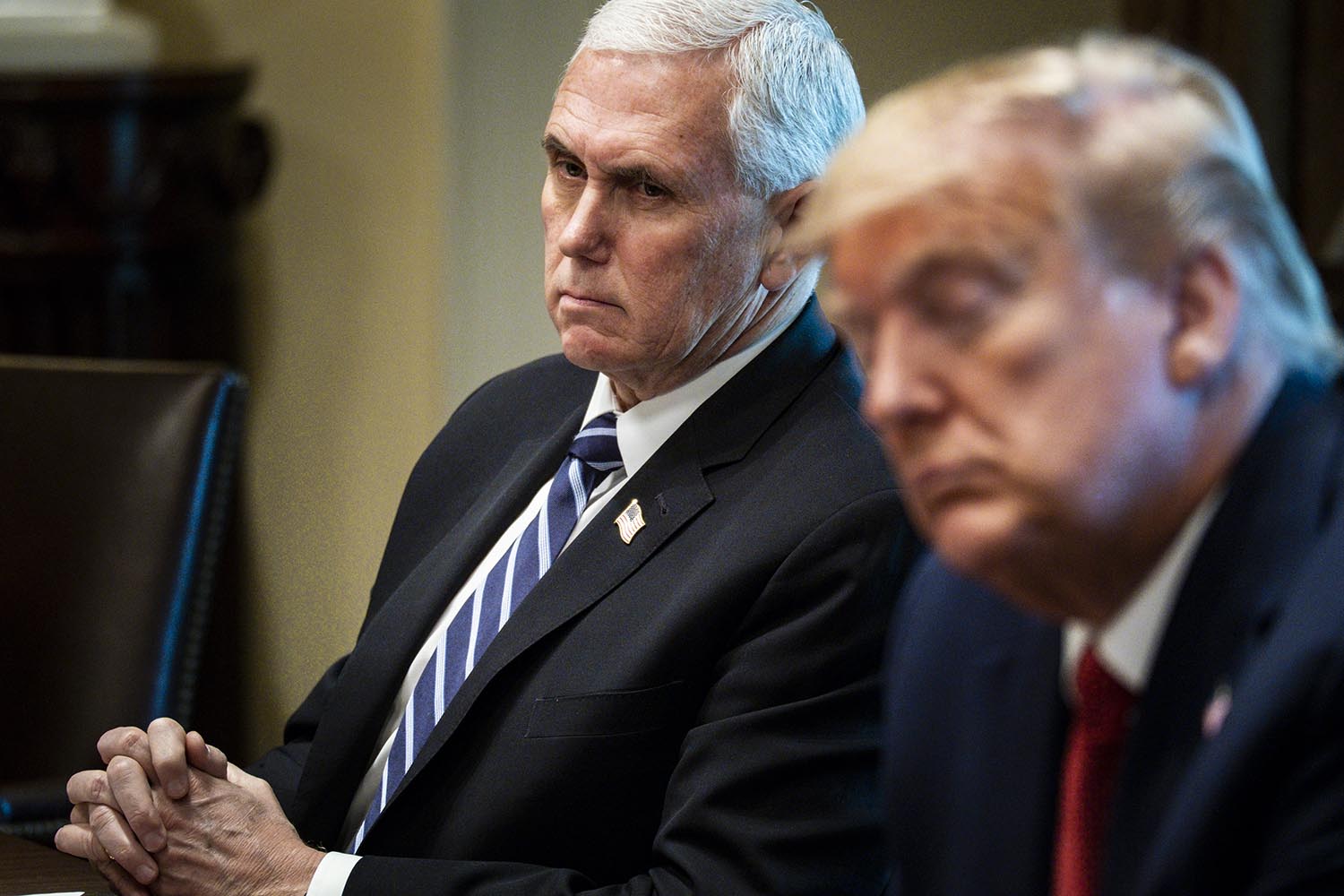
Though some requests have already been processed and supplies were delivered, the review process has effectively frozen already-approved coronavirus-related PPE aid to at least 13 countries, including Vietnam, Bangladesh, Honduras and the Philippines. Nor have American officials been told how to explain to foreign counterparts why their countries’ requests have been put on hold, the administration official said. The danger, officials acknowledge, is that the delays risk damaging relationships with allies who could help the U.S. with critical supplies down the road.
“One of the big questions the task force is discussing is how foreign aid could help us when a second wave hits, whether that’s in the fall or later this summer,” said another person close to USAID. “Pence realizes you have to wait for the right time to provide assistance, but also that foreign assistance can help us as well.”
America’s diplomats are also grappling with China’s attempts to exploit the shortages by supplying aid to Western countries, keenly aware of Beijing’s interest in showing it is supplanting the United States as a global leader.
Just days before a load of medical supplies from China arrived in the U.S. for distribution in New York, New Jersey and Connecticut, the State Department boasted in a press release that the United States was “Leading the Humanitarian and Health Assistance Response to COVID-19.”
Secretary of State Mike Pompeo highlighted the aid in a press conference on Tuesday, noting, “We’ve now made available a total of $274 million in funding to as many as 64 countries,” money he said “would go to some of the world’s most at-risk peoples.”
In the last two months, at least five U.S. embassies, including in Myanmar, Tajikistan, Uzbekistan, Kyrgyzstan and Laos, all announced in press releases that the U.S. government had given protective gear to their host countries, sometimes including pictures of boxes of the donations. U.S. embassies in Kazakhstan, South Africa, Zimbabwe, Mongolia, Nepal and Pakistan also announced support for fighting coronavirus.
There is bipartisan agreement on the need to resupply American hospitals and take care of domestic shortages first. But the issue is tricky: Other countries’ ability to fight the virus directly affects the U.S.—an infected man from Wuhan, the sprawling capital of Hubei province in China, is believed to be the first to bring the novel coronavirus to American shores in January—and millions of Americans work, serve, and study overseas in countries that have been hard hit.
“Our domestic response needs to be the priority, but the amount of aid offered internationally has been too slow and too small, risking the continued spread of the virus to Americans and to communities in countries with weaker infrastructure, immense poverty, and ongoing humanitarian crises,” said Sen. Tim Kaine (D-Va.), who is the ranking member of the Senate Foreign Relations subcommittee on Africa and Global Health Policy.
Other Democrats have been more pointed – and political – in their criticism. Dan Pfeiffer, who was a senior White House adviser for President Barack Obama, tweeted over the weekend, “Trump sending two million masks to China weeks before COVID came to America because he didn’t take the threat seriously would be a devastating ad.”
U.S. officials openly promoted the China shipment at the time as evidence of the generosity of the American people. And privately, the administration still defends the February shipment as a reasonable decision at the time.
“That was kind of a different era,” said one of the Trump administration officials, “when there was not much of an appreciation of this hitting the United States.”
But now, given the global shortage of critical medical supplies and U.S. health care workers’ daily pleas for more equipment, “the optics would look really terrible” if the U.S. government were to continue the overseas shipments, this official added.
The government has yet to curtail exports by U.S. companies, however—roughly 280 million masks in warehouses around the U.S. were purchased by foreign buyers on Monday alone, according to Forbes. A FEMA spokesperson said the agency “has not actively encouraged or discouraged U.S. companies from exporting overseas,” noting that various U.S. agencies are coordinating their activities with their overseas counterparts.
But FEMA is asking USAID to send back most of the reserves of protective gear it has stored in warehouses in Dubai and Miami for use in the U.S., according to one of the administration officials and a Senate Democratic foreign policy aide.
“What USAID is hoping for is that the market will improve in ways that they will be able to purchase additional PPE for restocking these warehouses or whatever the facilities are, relatively soon,” the aide said. “But obviously that’s aspirational and not based on any confidence at this point.”
A senior State Department official emphasized that the U.S. government is not providing countries with hard-to-find equipment that could be used to fight coronavirus in the United States instead.
“When it comes to PPE in particular, right now our assistance is not a zero-sum game,” the official said. “We are not providing assistance that could be headed to Detroit or to Kansas City. That’s not what we’re doing.”
The official added that the hold isn’t meant to be permanent. When industries “are able to ramp up and we have enough capacity here, we will absolutely shift as much of this stuff [as we can] around the world,” he said.
Source: politico.com
See more here: news365.stream






